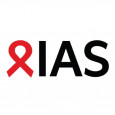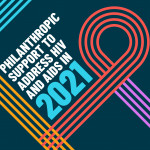The history of the HIV response is woven into the International AIDS Conferences. Ground-breaking science and political activism at the conferences have uniquely shaped the trajectory of the response.
Conferences in Canada have played key roles. In Montreal in 1989, protestors stormed the stage, establishing activism in the HIV response. In Vancouver in 1996, delegates celebrated a treatment revolution that saw HIV become a manageable condition. Today, AIDS 2022 returns to Montreal and also takes place virtually. But other crises like monkeypox, surging COVID-19 cases and climate change, remind us why now more than ever, we need to re-engage and follow the science.
In this episode of HIV unmuted, the award-winning IAS podcast, we take a deep dive into the breaking science being released at AIDS 2022, address important access concerns at the International AIDS Conferences and understand how to translate cutting-edge science into meaningful action.
Meet our guests:
- Erika Castellanos is Interim Executive Director of Global Action for Trans Equality (GATE). She tells us her story of growing up being denied basic human rights due to being trans and the difficulties she faced in accessing HIV medication. Erika helps analyse controversial visa issues around AIDS 2022, and helps us understand the community impact of the science being released at the conference.
- Linda-Gail Bekker, former IAS President and current Director of the Desmond Tutu HIV Centre at the University of Cape Town, dives into the breaking science being released at AIDS 2022 and translates what this means for the HIV response.
- John Nkengasong is tasked with leading some of the world’s largest HIV programmes as the U.S. Global AIDS Coordinator and Special Representative for Global Health Diplomacy at the U.S. Department of State. He talks to us about why AIDS 2022 is so important and his vision for the future of the HIV response.








Comments
Comments